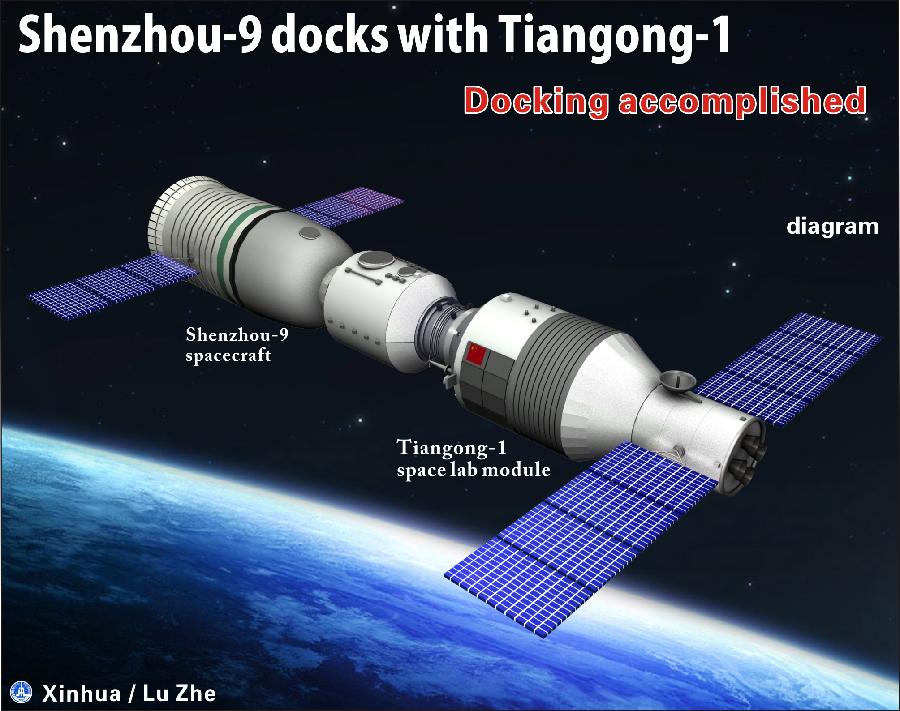It’s not looking good for China’s first space station, Tiangong-1. It’s expected to crash to Earth in the latter half of 2017 as space authorities have reportedly lost control of the floating laboratory.
Launched in September 2011 from the Jiuquan Satellite Launch Center, Tiangong-1 is a prototype space station. It serves both as a manned lab and an experimental hub to test docking capabilities and orbital rendezvous. The space station’s name translates to “Heavenly Palace 1.”
Wu Ping, deputy director of China’s Manned Space Engineering office, said that most of the station is likely to blow up in pieces in the atmosphere and will pose no threat to people on the ground, Newsweek reports.
In its five years in space, Tiangong-1 has conducted observations of ongoing phenomena on Earth, such as the Australian bush fires and Yuyao floods in China. It kicked off China’s space program, successfully docking Shenzhou-8 in 2011 – another first for the country. It has been in service for over two years more than its original lifespan intended.
Ping, speaking to reporters at a satellite launch center, said that Tiangong-1 has “comprehensively fulfilled its historical mission” and can now come back to Earth.
His announcement came just a few months after speculations that China had lost control of the station due to a mechanical or technical failure of sorts and that there has been no recent communication with Tiangong-1. Some observers have pointed out that the space station appears to be rolling in its orbit and flipping around, as if uncontrolled, Mashable reports.
China says it will monitor Tiangong-1’s re-entry and alert international bodies should any falling debris become a major safety threat. Tiangong-2 succeeds Tiangong-1, launched last week and will make way for Tiangong-3. China said it hopes to eventually send its own man on the moon and in the near future, carry out a mission to Mars.
























